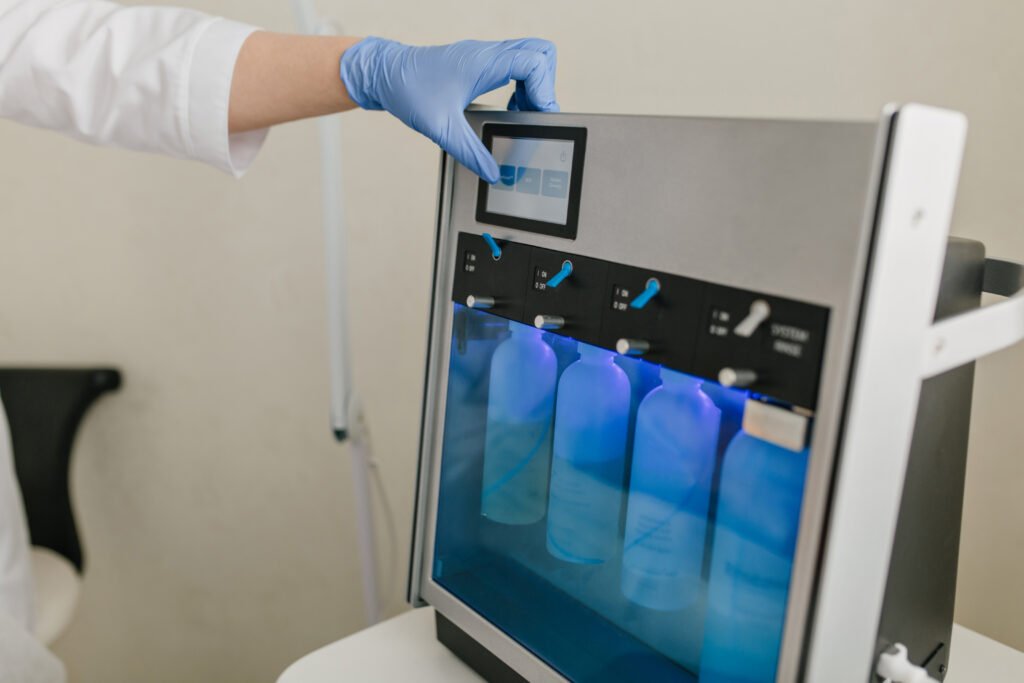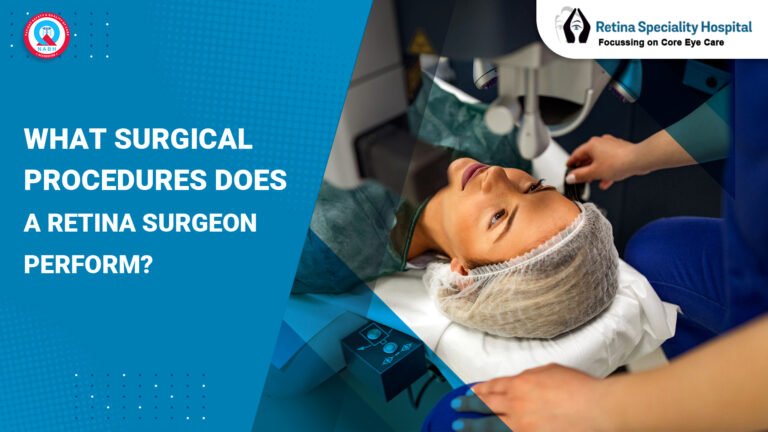When it comes to eye care in Indore, one of the most advanced surgical procedures performed is vitrectomy. As patients seek the best eye doctor in Indore or the best eye hospital in Indore, questions about vitrectomy often arise. One common query is whether vitrectomy removes all of the vitreous humor from the eye. To answer this question comprehensively, we need to delve into the details of the procedure, its purposes, and its outcomes.
Understanding Vitreous and Vitrectomy
The vitreous is a clear, gel-like substance that fills the space between the lens and the retina in the eye. It helps maintain the eye’s shape and provides support to the retina. As we age or due to certain eye conditions, the vitreous can change, leading to various vision problems.
Vitrectomy is a surgical procedure performed by an eye specialist in Indore or other qualified ophthalmologists. It involves removing some or all of the vitreous from the eye. This procedure is typically recommended for treating conditions such as retinal detachment, macular holes, diabetic retinopathy, and certain types of eye injuries.
The Vitrectomy Procedure
At a top eye care hospital in Indore, a vitrectomy is performed using state-of-the-art equipment. The surgeon makes tiny incisions in the white part of the eye (sclera) and uses specialized instruments to remove the vitreous. The procedure is usually done under local anesthesia, and patients can often go home the same day.
Does Vitrectomy Remove All Vitreous?
The short answer is: not necessarily. The amount of vitreous removed during a vitrectomy depends on the specific condition being treated and the surgeon’s judgment. In many cases, the goal is to remove as much vitreous as necessary to achieve the desired outcome, rather than removing all of it.
Here are some key points to consider:
- Partial vs. Complete Vitrectomy: In some cases, only a portion of the vitreous needs to be removed. This is known as a partial vitrectomy. In other situations, the surgeon may aim to remove as much vitreous as possible, which is called a complete vitrectomy.
- Surgical Limitations: Even in a complete vitrectomy, it’s practically impossible to remove 100% of the vitreous. Some residual vitreous often remains, especially near the retina and in the periphery of the eye.
- Vitreous Replacement: After removing the vitreous, the surgeon typically replaces it with a saline solution. Over time, the eye produces aqueous humor to fill the space.
- Regeneration: The vitreous does not regenerate once removed. However, the saline solution and naturally produced aqueous humor serve similar functions in maintaining eye shape and supporting the retina.
Implications of Vitreous Removal
Understanding the extent of vitreous removal is crucial for patients seeking eye care in Indore. Here are some implications:
- Improved Vision: Removing diseased or cloudy vitreous can significantly improve vision, especially in cases of vitreous hemorrhage or certain retinal conditions.
- Retinal Access: Vitrectomy allows retina specialists in Indore better access to treat retinal conditions such as detachments or macular holes.
- Potential Complications: While rare, complications can include cataract formation, retinal detachment, or infection. However, these risks are minimized when the procedure is performed by experienced surgeons at the best eye hospital in Indore.
- Recovery Time: Recovery from vitrectomy varies but typically takes several weeks. Patients may need to maintain a specific head position and use eye drops as prescribed by their eye specialist in Indore.
Advanced Technology in Vitrectomy
Modern eye hospitals in Indore use cutting-edge technology for vitrectomy procedures. Some advanced techniques include:
- Small-Gauge Vitrectomy: This technique uses smaller instruments, resulting in faster healing and less discomfort for patients.
- Heads-Up Surgery: Some eye care hospitals in Indore use 3D visualization systems that allow surgeons to operate while looking at a high-resolution screen instead of through a microscope.
- Intraoperative OCT: Optical Coherence Tomography (OCT) during surgery provides real-time, high-resolution images of the retina, enabling more precise procedures.
Choosing the Right Hospital for Vitrectomy
When considering vitrectomy, it’s crucial to choose a reputable eye care centre in Indore. Look for hospitals that offer:
- Experienced retina surgeons
- State-of-the-art equipment
- Comprehensive pre- and post-operative care
- A track record of successful outcomes
The best eye care hospital in Indore will offer not just vitrectomy but a range of services including retina treatment, cornea specialist consultations, and eye trauma treatment.
Post-Vitrectomy Care and Follow-up
After undergoing vitrectomy at an eye hospital in Indore, patients need to follow their doctor’s instructions carefully. This may include:
- Using prescribed eye drops
- Avoiding strenuous activities
- Wearing an eye patch
- Attending follow-up appointments
Regular check-ups with an eye doctor in Indore are essential to monitor healing and address any concerns promptly.
The Future of Vitrectomy
As medical technology advances, vitrectomy procedures continue to improve. Future developments may include:
- Even smaller instruments for minimally invasive surgery
- Improved vitreous substitutes
- Enhanced imaging technologies for more precise surgeries
These advancements will further cement the reputation of leading institutions as the best eye hospital in Indore and beyond.
Conclusion
While vitrectomy does not remove all vitreous in most cases, it is a highly effective procedure for treating various eye conditions. The amount of vitreous removed depends on the specific condition and the surgeon’s assessment. Patients in Indore are fortunate to have access to world-class eye care facilities and specialists who can perform this delicate procedure with precision and care.
If you’re experiencing vision problems or have been recommended for a vitrectomy, consult with a reputable eye specialist in Indore. Remember, early intervention and treatment by qualified professionals can make a significant difference in preserving and improving your vision.
FAQs About Vitrectomy
Q: How long does recovery take after a vitrectomy at Retina Speciality Hospital?
A: Recovery time varies, but most patients at Retina Speciality Hospital experience significant improvement within 4-6 weeks. Full recovery may take up to 3 months.
Q: Is vitrectomy painful when performed at Retina Speciality Hospital?
A: The procedure itself is not painful as it’s performed under anesthesia. Some discomfort during recovery is normal, but Retina Speciality Hospital provides appropriate pain management.
Q: Can I drive after having a vitrectomy at Retina Speciality Hospital?
A: Driving is typically not recommended for at least a few weeks after surgery. The exact timeline will be determined by your surgeon at Retina Speciality Hospital based on your recovery.
Q: What are the success rates of vitrectomy at Retina Speciality Hospital?
A: Success rates are high, with over 90% of patients experiencing improved vision. However, exact outcomes depend on the underlying condition being treated.
Q: How often will I need follow-up appointments at Retina Speciality Hospital after vitrectomy?
A: Initially, you may have frequent follow-ups, possibly weekly. As you heal, the intervals between appointments at Retina Speciality Hospital will increase.
Call to Action
Don’t let eye problems compromise your quality of life. If you’re experiencing vision issues or have been recommended for a vitrectomy, trust the experts at Retina Speciality Hospital. Our team of experienced eye specialists and state-of-the-art facilities ensure you receive the best possible care. We’re committed to preserving and improving your vision with the latest techniques and personalized treatment plans.
Contact Retina Speciality Hospital today to schedule a consultation with our retina specialists. Let us help you see the world more clearly. Your vision is our priority – take the first step towards better eye health now!












